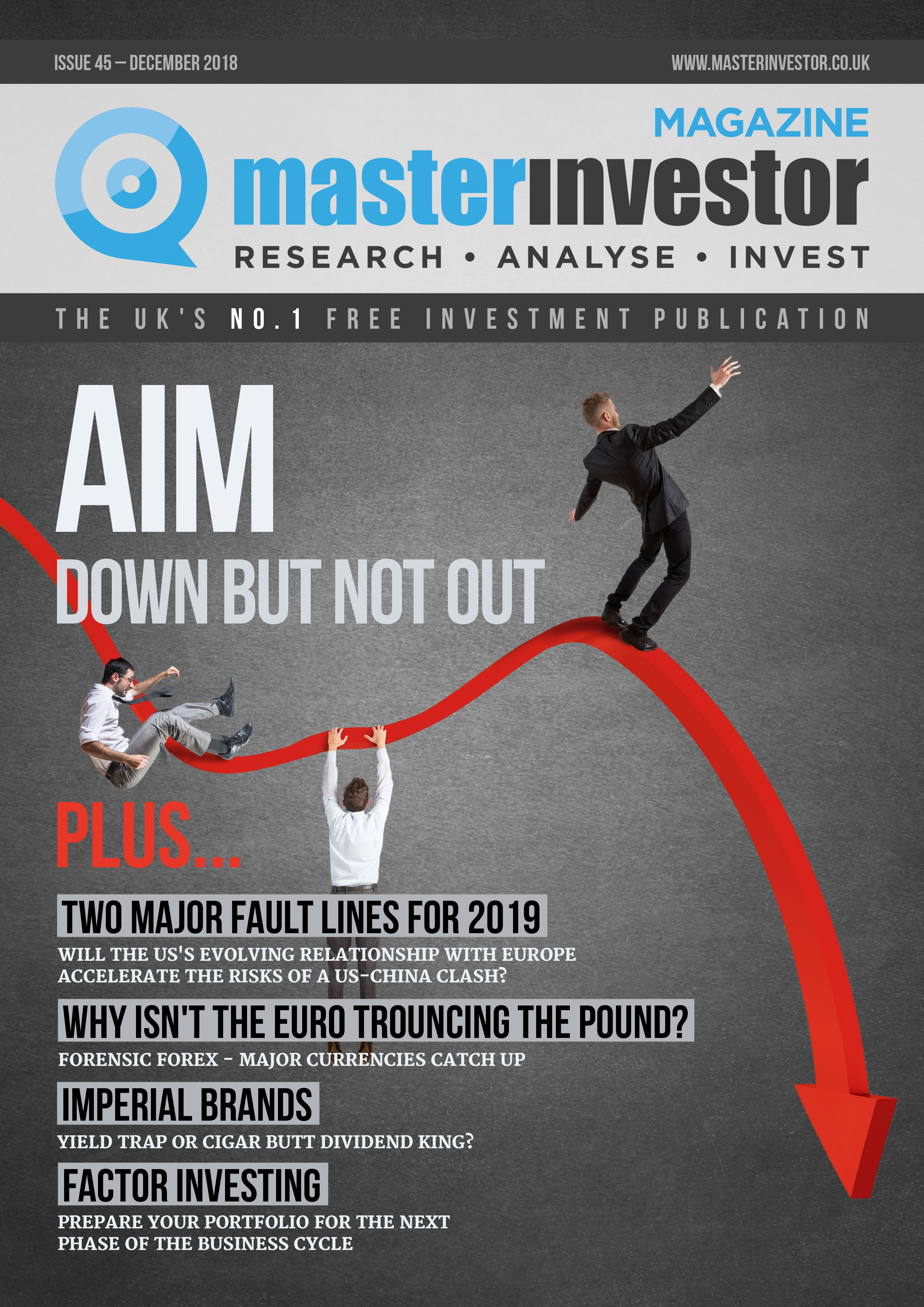Bear necessities – 3 funds to profit from the bear market

The majority of investment funds are positioned to profit from rising prices and will suffer during periods of weakness. Out of all the thousands of different vehicles on offer there are very few that will actually make money during a bear market, so it might be worth making room for one or two of them in your portfolio to hedge out some of the potential downside.

Never miss an issue of Master Investor Magazine – sign-up now for free! |
Odey Odyssey is one of the most aggressive options. It is a multi-asset fund, which means that the managers need to have not only better insight, or contrary views to the market, but also the best vehicle in which to execute it.
At the end of November, the $91 million fund had a net equity short exposure of 118.4% and was short of all the main equity regions. This helped it to make a decent 15.5% return in the first 11 months of 2018, although there have been times in the past when they have been wrong and run up large losses.
Darius McDermott, MD of Chelsea Financial Services, says that the manager expects a slowdown or flattening in corporate earnings growth in the US and has positioned the fund to be net short accordingly.
“In fact, they are net short nearly everything, showing a considerable view that the three major trade blocs are going to hit recession in the next 12-18 months. They are also very negative on investment grade bonds, where a large section of the market hover just into the investment grade space. The reasoning is understandable, but any reversion to QE, or similar stimulus, could cause some difficulties for a very directional portfolio.”
A more bottom up approach
A slightly less aggressive choice would be City Financial Absolute. They take a more bottom up approach, with the manager looking for stocks that are over or undervalued based on their fundamentals. This means that they are not quite as macro driven, although they will still be affected by market sentiment is as it will affect the various valuations.
“The fund has recovered some performance since the start of the sell-off, but it was still down considerably last year. They are shorting some growth names where they have seen the market valuing the growth rather than the fundamental free cash flow and they have been picking up longs in the retail space, which has been particularly heavily hit by structural concerns against a difficult cyclical backdrop,” explains McDermott.
At the end of November, the £200 million fund had an overall net short exposure of 8.5%, with the biggest short being to the US stock market at 25.7% and the largest long being the 10.4% weighting in the UK.
A more conservative way to profit from market falls would be to invest in the £1.5 billion Jupiter Absolute Return fund that is managed by James Clunie.
Stocks to go long and stocks to go short
“Clunie admits that he doesn’t try to predict the macro situation,” says McDermott. “He doesn’t believe that he has an edge and even if he was correct, it rarely plays out the way it theoretically should in markets. Instead, he finds stocks to go long and stocks to go short and then puts hedges on any large one way bet.”
Earlier in 2018 Clunie had said that there were an awful lot of overpriced stocks that he was shorting and this left him with a net negative beta to the market, which he has had since 2015. This means he should benefit from a choppy and falling market, but without too much downside risk if markets return to grinding higher, which would be a bad outcome for him, but not disastrous.

Never miss an issue of Master Investor Magazine – sign-up now for free! |
At the end of November he had put together a portfolio with 93 long holdings totalling 49.1% of the assets and 136 shorts that were equivalent to 57.3% of the assets, with the fund having an overall net short exposure of 8.2%. The most significant long exposure was to the UK at 23.1% and the biggest short was to the US at 41.6%.
If you are tempted by any of these funds you would need to bear in mind that Odey Odyssey is by far and away the riskiest of the three. City Financial Absolute is more fundamentally driven and the equity long/short positions make it a safer option, although the pure stock picking exposure without the hedges that James Clunie has in place has pushed up the volatility.
Jupiter Absolute Return is the one that is most commonly used as a portfolio diversifier, and although it may lose 2% or 3% for a couple of years, it will make a lot of it up when everything else falls. In the first 11 months of 2018 it was down 3.4%.
Comments (0)